Human bodies are complex systems that rely on hormones to function properly. These chemical messengers play a vital role in regulating various bodily functions, from metabolism and growth to mood and reproduction. When hormone levels become imbalanced, it can lead to a range of health issues that affect both men and women. This article will explore the importance of hormone optimization and how it can help improve overall health and well-being.
Table of Contents
Key Takeaways
- Hormone optimization is crucial for maintaining overall health and wellness
- Imbalanced hormones can affect both men and women, causing various symptoms
- Hormone replacement therapy (HRT) can help restore balance and improve quality of life
- Diet, exercise, and lifestyle changes play a significant role in hormone health
- Regular check-ups and blood tests are essential for monitoring hormone levels
- Personalized treatment plans are key to successful hormone optimization
What Are Hormones and Why Are They Important to Our Bodies?

Hormones are chemical substances produced by various glands in the bodies. They act as messengers, traveling through the bloodstream to target specific cells and organs. These powerful chemicals control many of the body’s essential functions, including:
- Metabolism
- Growth and development
- Reproduction
- Mood and emotions
- Sleep patterns
- Energy levels
When hormone levels are balanced, the body functions optimally. However, when there’s an imbalance, it can lead to a variety of symptoms and health issues.
Common Hormones and Their Functions
There are many different hormones in the human body, each with its specific role. Some of the most important hormones include:
- Testosterone: This hormone is often associated with men but is present in both sexes. It plays a role in muscle mass, bone density, and sex drive.
- Estrogen: Primarily a female hormone, estrogen is crucial for reproductive health, bone strength, and cardiovascular function.
- Progesterone: Another important female hormone, progesterone helps regulate the menstrual cycle and supports pregnancy.
- Thyroid hormones: These hormones control metabolism, energy levels, and body temperature.
- Cortisol: Often called the “stress hormone,” cortisol helps regulate blood sugar levels, metabolism, and the body’s stress response.
- Growth hormone: This hormone is essential for growth and development, as well as maintaining muscle mass and bone density.
Signs of Hormone Imbalance

Hormone imbalances can manifest in various ways, and symptoms can differ between men and women. Some common signs of hormone imbalance include:
For Women:
- Irregular menstrual cycles
- Hot flashes and night sweats
- Mood swings and irritability
- Weight gain, especially around the midsection
- Fatigue and low energy
- Decreased libido
- Vaginal dryness
- Hair loss or thinning
For Men:
- Decreased muscle mass and strength
- Increased body fat, particularly in the abdominal area
- Reduced libido and erectile dysfunction
- Fatigue and low energy
- Mood changes, including irritability and depression
- Hair loss
- Decreased bone density
It’s important to note that these symptoms can also be caused by other health conditions, so it’s crucial to consult with a healthcare professional for a proper diagnosis.
Bodies: Causes of Hormone Imbalance

Several factors can contribute to hormone imbalances in both men and women:
- Aging: As we get older, hormone production naturally declines.
- Stress: Chronic stress can disrupt hormone balance, particularly cortisol levels.
- Poor diet: Nutritional deficiencies and unhealthy eating habits can affect hormone production.
- Lack of exercise: Regular physical activity is essential for maintaining hormone balance.
- Environmental toxins: Exposure to certain chemicals and pollutants can interfere with hormone function.
- Medical conditions: Some health issues, such as thyroid disorders or polycystic ovary syndrome (PCOS), can cause hormone imbalances.
- Medications: Certain medications, including birth control pills and steroids, can affect hormone levels.
The Role of the Bodies Hormone Optimization in Health

Hormone optimization aims to restore balance to the body’s hormone levels, helping to alleviate symptoms and improve overall health. This process involves identifying hormone imbalances through blood tests and other diagnostic methods and then developing a personalized treatment plan to address these imbalances.
Benefits of Bodies Hormone Optimization
When hormones are properly balanced, individuals may experience a range of benefits, including:
- Improved energy levels and reduced fatigue
- Enhanced mood and mental clarity
- Increased muscle mass and strength
- Better sleep quality
- Improved libido and sexual function
- Healthier skin, hair, and nails
- Reduced risk of certain age-related diseases, such as osteoporosis and heart disease
Hormone Replacement Therapy (HRT)
One common approach to hormone optimization is hormone replacement therapy (HRT). This treatment involves supplementing the body with deficient hormones or out of balance. HRT can be administered in various forms, including:
- Oral medications
- Topical creams or gels
- Injections
- Pellets inserted under the skin
It’s important to note that HRT should always be prescribed and monitored by a qualified healthcare professional. The type and dosage of hormones used will depend on individual needs and health status.
Bioidentical Hormones vs. Synthetic Hormones
There are two main types of hormones used in HRT:
- Bioidentical hormones: These are chemically identical to the hormones produced naturally by the body. They are typically derived from plant sources and are considered by some to be a more natural option.
- Synthetic hormones: These are chemically altered hormones that are designed to mimic the effects of natural hormones in the body.
There is ongoing debate about the benefits and risks of bioidentical versus synthetic hormones. Some studies suggest that bioidentical hormones may have fewer side effects, but more research is needed to confirm this.
Natural Ways to Support Hormone Balance
While hormone replacement therapy can be effective for many people, there are also natural ways to support hormone balance:
Diet and Nutrition
Eating a balanced diet rich in nutrients can help support hormone health. Some key dietary recommendations include:
- Consuming plenty of fruits and vegetables
- Choosing whole grains over refined carbohydrates
- Including healthy fats, such as those found in avocados, nuts, and fatty fish
- Limiting processed foods and added sugars
- Staying hydrated by drinking plenty of water
Exercise and Physical Activity
Regular exercise can help balance hormones by:
- Reducing stress and cortisol levels
- Improving insulin sensitivity
- Boosting testosterone and growth hormone production
- Enhancing overall metabolism
Aim for a mix of cardiovascular exercise and strength training for optimal hormone balance.
Stress Management
Chronic stress can wreak havoc on hormone levels. Implementing stress-reduction techniques such as meditation, yoga, or deep breathing exercises can help maintain hormone balance.
Sleep Hygiene
Getting adequate, quality sleep is crucial for hormone health. Aim for 7-9 hours of sleep per night and establish a consistent sleep schedule.
Limiting Exposure to Endocrine Disruptors
Certain chemicals, known as endocrine disruptors, can interfere with hormone function. Reducing exposure to these substances by choosing organic foods, using natural personal care products, and avoiding plastic containers can help support hormone balance.
The Importance of Regular Check-ups and Testing
Regular check-ups and hormone testing are essential for monitoring hormone levels and identifying any imbalances early on. This allows for timely intervention and personalized treatment plans.
Common Hormone Tests
Some common hormone tests include:
- Thyroid function tests (TSH, T3, T4)
- Sex hormone tests (testosterone, estrogen, progesterone)
- Cortisol tests
- Insulin and blood glucose tests
- Growth hormone tests
| Test Name | Purpose | Normal Range (may vary by lab) |
|---|---|---|
| TSH | Measures thyroid-stimulating hormone | 0.4 – 4.0 mIU/L |
| Total Testosterone (men) | Assesses testosterone levels | 300 – 1000 ng/dL |
| Estradiol (women) | Measures estrogen levels | 30 – 400 pg/mL (varies with menstrual cycle) |
| Hormone | Function | Symptoms of Imbalance |
|---|---|---|
| Cortisol | Stress response, metabolism | Fatigue, weight gain, mood swings |
| Insulin | Blood sugar regulation | Increased hunger, weight gain, diabetes risk |
| Growth Hormone | Growth, cell repair | Decreased muscle mass, increased body fat |
Personalized Approach to Hormone Optimization
Every individual’s hormone profile is unique, and what works for one person may not work for another. A personalized approach to hormone optimization takes into account factors such as:
- Age
- Gender
- Medical history
- Lifestyle factors
- Current hormone levels
- Symptoms and health goals
Working with a healthcare professional who specializes in hormone health can help ensure that you receive a tailored treatment plan that addresses your specific needs.
Potential Risks and Side Effects of Hormone Therapy
While hormone optimization can offer many benefits, it’s important to be aware of potential risks and side effects. These may include:
- Increased risk of blood clots
- Breast tenderness
- Acne or skin changes
- Mood swings
- Changes in libido
- Headaches
Your healthcare provider should discuss these potential risks with you and monitor your progress closely throughout treatment.
The Future of Hormone Optimization
As research in the field of endocrinology continues to advance, new approaches to hormone optimization are emerging. Some areas of ongoing research include:
- Gene therapy for hormone-related disorders
- Personalized medicine based on genetic profiles
- Novel delivery methods for hormone replacement therapy
- Development of more targeted hormone therapies with fewer side effects
These advancements hold promise for even more effective and personalized approaches to hormone optimization in the future.
In conclusion, hormone optimization plays a crucial role in maintaining overall health and well-being. By understanding the importance of hormones and taking steps to keep them balanced, individuals can improve their quality of life and potentially reduce the risk of age-related health issues.
Feel free to visit our website or contact us now to take the first step towards a healthier, more active lifestyle! Whether through hormone replacement therapy or natural lifestyle changes, working towards optimal hormone balance can lead to significant improvements in energy, mood, and overall vitality.


